Sen. Chris Murphy Listens to Concerns Regarding Reproductive Healthcare

Audio By Carbonatix
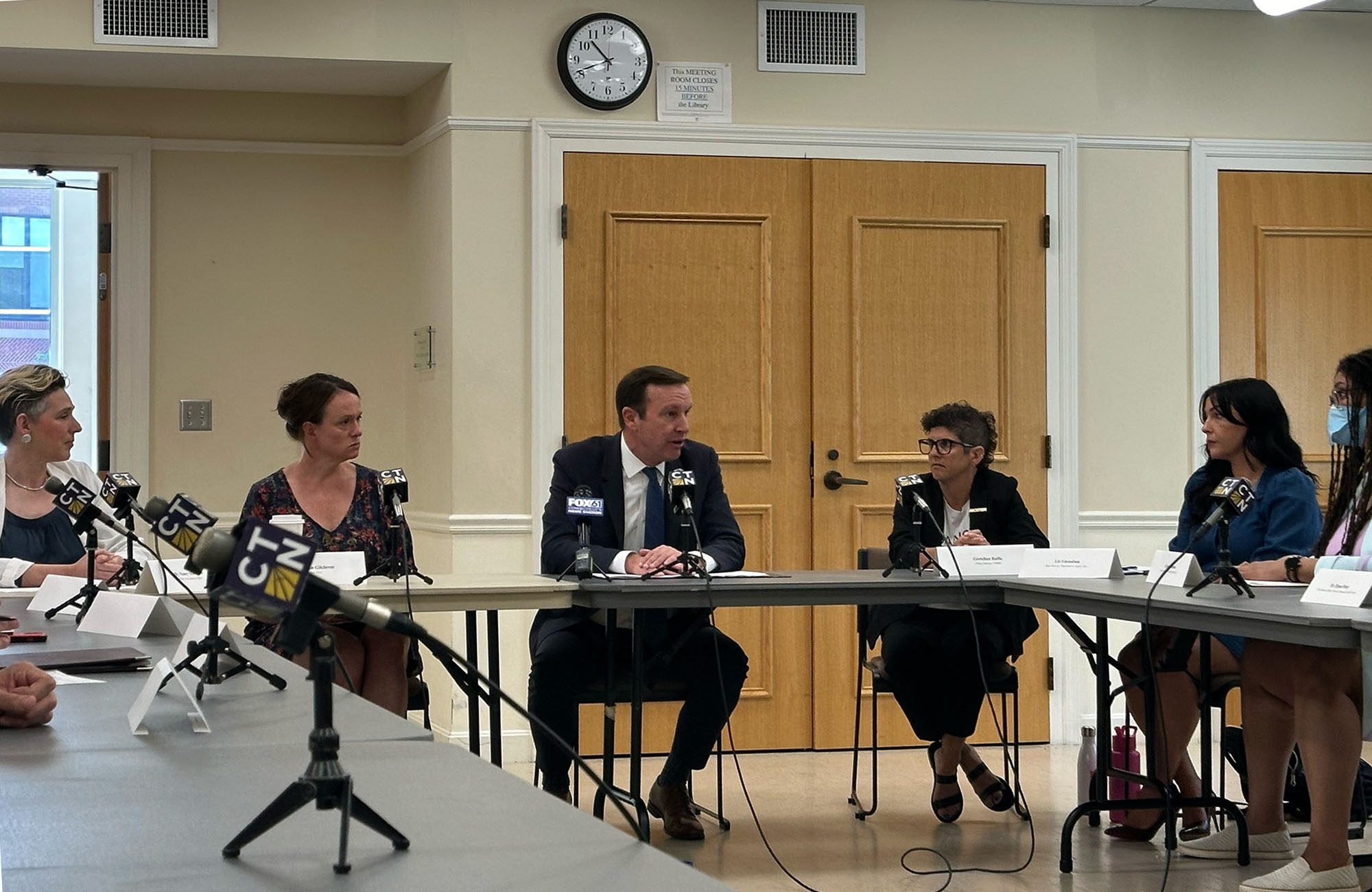
Sen. Chris Murphy during the roundtable discussion about threats to reproductive healthcare. Photo Credit: Kaily Martinez
Sen. Chris Murphy held a roundtable discussion in West Hartford on Friday with reproductive rights advocates, healthcare providers, and state officials on reproductive healthcare rights, what the future can look like, and what can be done.
By Kaily Martinez
As the presidential election inches closer, more conversations on reproductive rights and healthcare have sparked. On Friday, June 28, at at the West Hartford Public Library’s Noah Webster branch, U.S. Sen. Chris Murphy held a roundtable discussion with reproductive rights advocates, healthcare providers, and state officials on access to reproductive healthcare options such as abortion in Connecticut and nationwide.
The roundtable discussion began with Murphy stating it has been two years since a consensus was made in this country that overruled the choice people have on whether to get an abortion or not. The consensus Murphy is referring to is Dobbs v. Jackson Women’s Health Organization, where the majority ruled the Consitution does not protect the right to have an abortion and overturned Roe v. Wade and Planned Parenthood v. Casey.
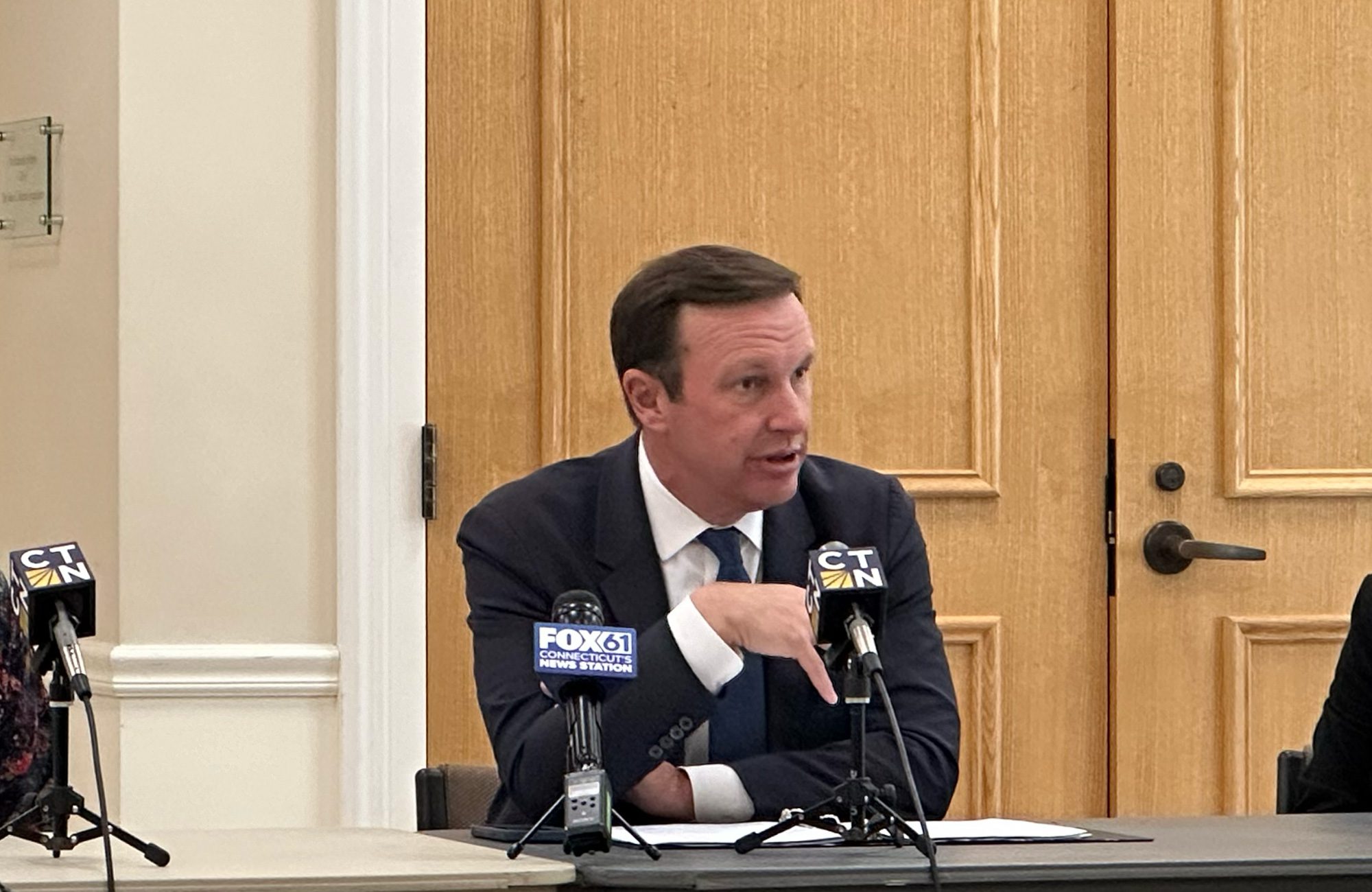
Many members voiced their concerns if more bans and limitations are placed on reproductive healthcare. Photo credit: Kaily Martinez
“We have no choice but to repair this damage. Our mission in the United States Senate is to elect enough pro-choice members that we will be able to codify the right to an abortion in statute and thus make sure no matter where you live, you have the right to full reproductive healthcare services,” Murphy said.
Following the presidential debate Thursday night, Murphy brought up how the “radical right” will not stop at state abortion bans and will “try to pass a national abortion ban.” While abortion bans are their main goal, they are eager to move on to contraception and IVF, Murphy said. In the instance of IVF, members of the House of Representatives and the United States Senate have supported personhood legislation.
Murphy said these personhood laws make access to IVF treatment illegal. However, earlier this month, in the Senate, they tried to pass legislation to protect the right to IVF and contraception so states could not place restrictions or bans, Murphy said. Unfortunately, there was no support for the decision. “We are not giving up. We are going to continue this fight,” Murphy said.
State Rep. and Co-Chair of the Connecticut Reproductive Rights Caucus, Jillian Gilchrest, mentioned in other states there are bans that deny individuals the right to an abortion or providers the ability to give an abortion. Yet, these individuals and providers are protected in Connecticut if they come here for an abortion from another state. While they are protected, there is still more that needs to be done in terms of abortion care.
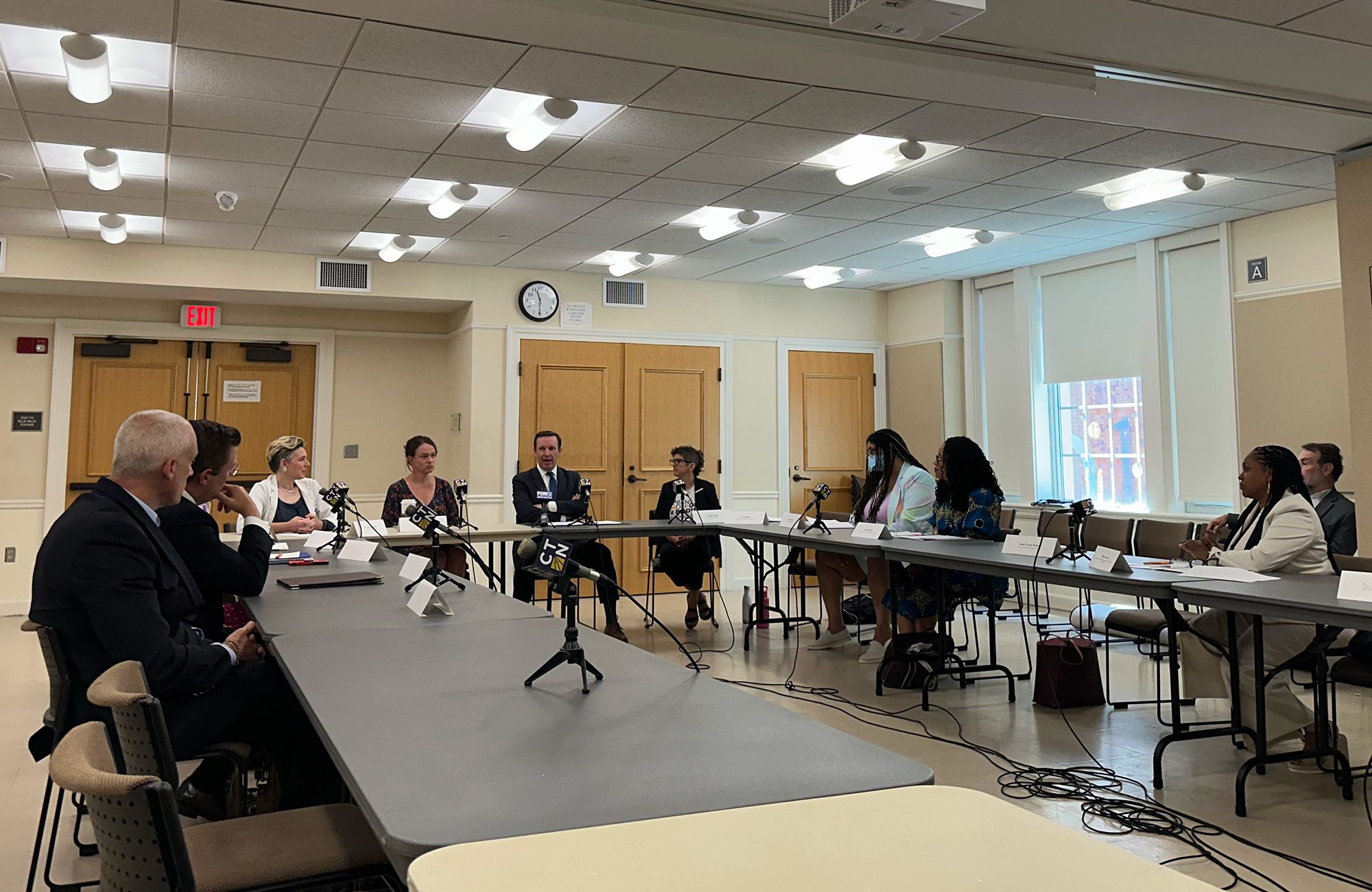
“Connecticut does shine,” Murphy said. “Especially in that first session, Connecticut stood up and made clear this was going to be a safe haven.” Photo Credit: Kaily Martinez
Gilchrest said that compared to other states, Connecticut leads the way since Medicaid can cover the cost of abortion because Roe v. Wade was codified into Connecticut state law, making abortion safe and legal for individuals and providers. Nonetheless, Gilchrest stated that the Medicaid rate has not been increased in decades. If providers are performing abortions under Medicaid, they should be “reimbursed what they are owed,” Gilchrest said
“Additionally, we want to go beyond Roe in the state of Connecticut. Individuals should have access to abortion throughout their pregnancy. The extreme right uses terms that are not medically accurate, like ‘late-term abortion.’ What we know to be true is that when an individual needs an abortion later in their pregnancy, that is oftentimes a really traumatic experience for their family,” Gilchrest said. “They should certainly not have an additional barrier of not being able to access the abortion care they need later in that pregnancy.”
Some people may need an emergency abortion because carrying out a full-term pregnancy could put their lives at risk. Dr. Nancy Stanwood, chief medical officer of Planned Parenthood Southern New England, gave an example of a pregnancy complication called preeclampsia that causes high blood pressure, swelling of the brain and can lead to coma. Another example given supporting reproductive healthcare rights was that racial disparities can cause pregnancy concerns for people of color, who are more likely to have a greater risk of having a pregnancy-related death.
“Do not tie our hands; our hands need to be free to take care of patients in emergency crises. We need to make sure that at the federal level, there is protection for access to this incredibly important care. We need to make sure that it’s not judges or legislators who are making these medical decisions, but its patients and their trusted family and friends,” Stanwood said.
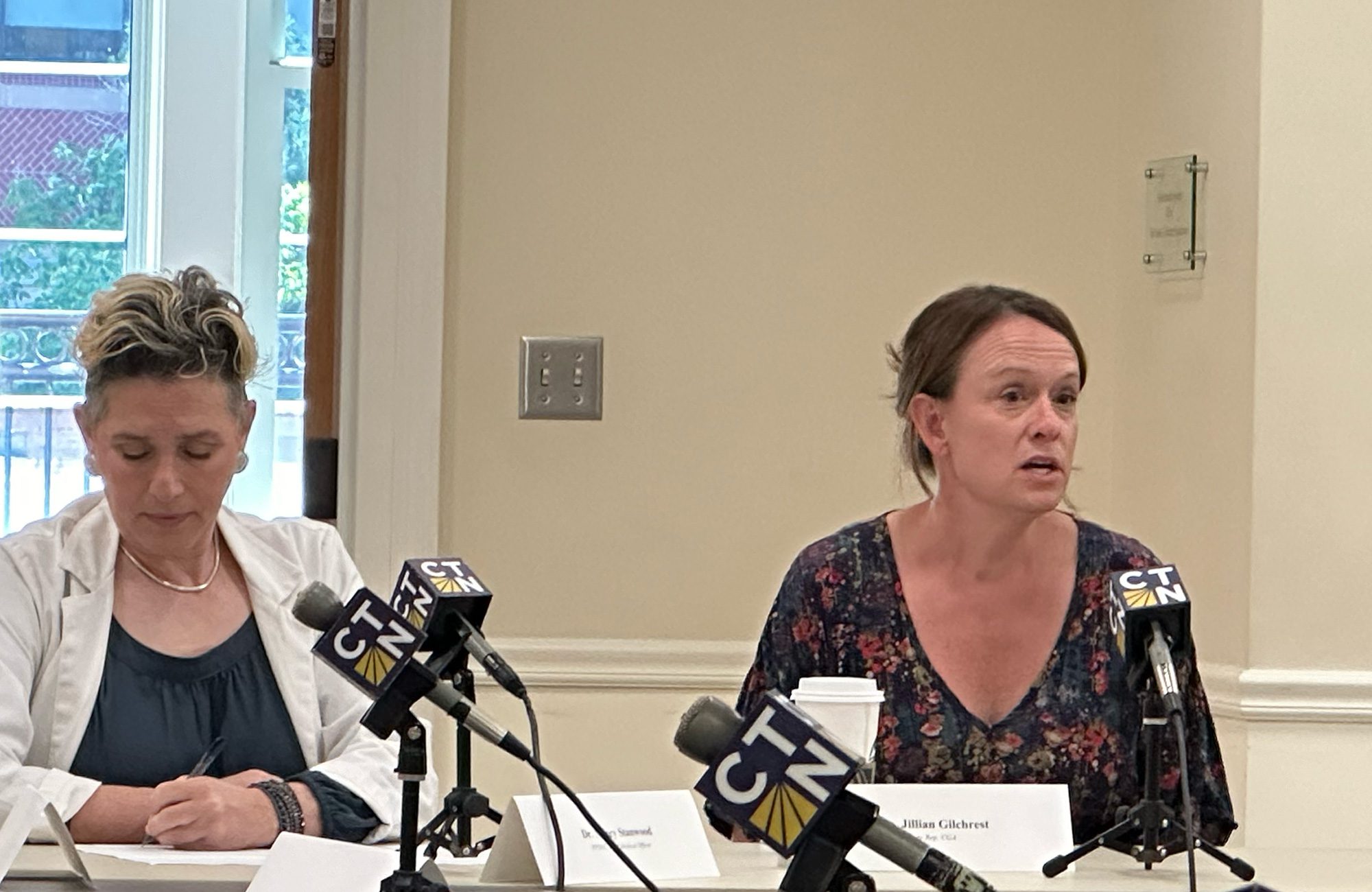
Jillian Gilchrest (on the right) is seated next to Dr. Nancy Stanwood (on the left). Gilchrest was the first member to speak at the roundtable discussion. Photo Credit: Kaily Martinez
Throughout the roundtable discussion, many different personal experiences and examples were shared, but all connected to how important reproductive healthcare and rights are for each individual person. Gretchen Raffa, vice president of public policy and advocacy at Planned Parenthood of Southern New England, mentioned many states have bans on treatments for transgender patients and described how barriers towards reproductive healthcare rights could cause more complications for them.
While roundtable participants had more to say, Murphy encouraged them to continue sharing their experiences with him so that he could improve these issues in Connecticut. As the discussion came to a close, roundtable members expressed the importance of voting in any election.
“That will be a big part of what this discussion from here until November is going to be about,” Murphy said in relation to reproductive healthcare rights leading up to the presidential election.
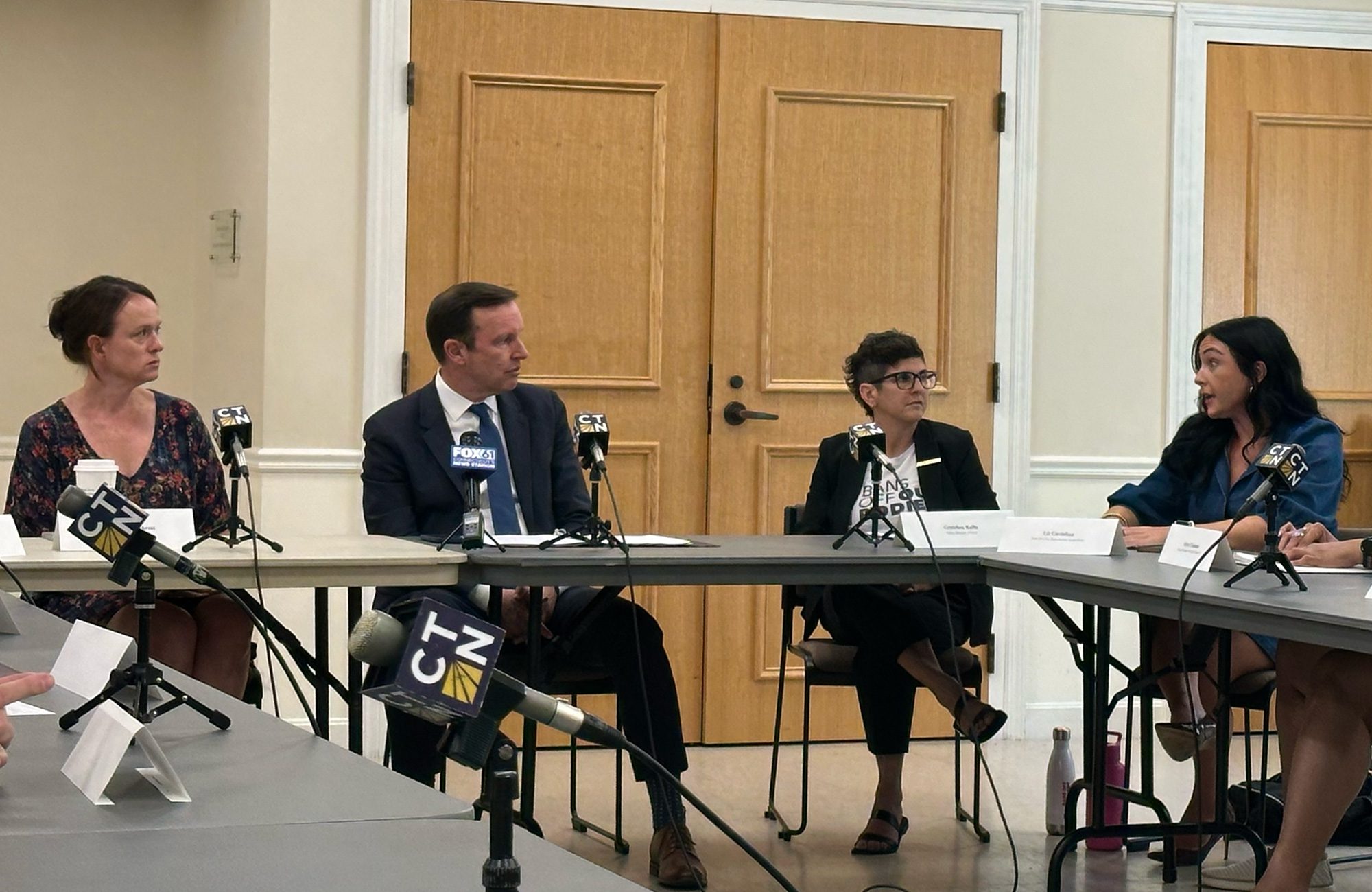
Jillian Gilchrest, Sen. Chris Murphy, Gretchen Raffa and Liz Gustafson (from left to right). Photo Credit: Kaily Martinez
Like what you see here? Click here to subscribe to We-Ha’s newsletter so you’ll always be in the know about what’s happening in West Hartford! Click the blue button below to become a supporter of We-Ha.com and our efforts to continue producing quality journalism.



